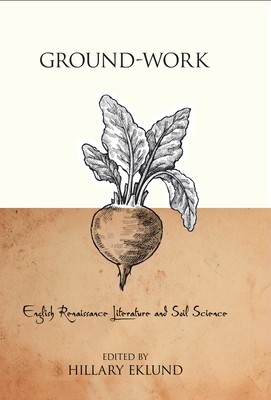
- We will send in 10–14 business days.
- Publisher: Penn State University Press
- ISBN-10: 0271092130
- ISBN-13: 9780271092133
- Format: 15.2 x 22.9 x 1.8 cm, minkšti viršeliai
- Language: English
- SAVE -10% with code: EXTRA
Ground-Work (e-book) (used book) | bookbook.eu
Reviews
Description
How does soil, as an ecological element, shape culture? With the sixteenth-century shift in England from an agrarian economy to a trade economy, what changes do we see in representations of soil as reflected in the language and stories during that time? This collection brings focused scholarly attention to conceptions of soil in the early modern period, both as a symbol and as a feature of the physical world, aiming to correct faulty assumptions that cloud our understanding of early modern ecological thought: that natural resources were then poorly understood and recklessly managed, and that cultural practices developed in an adversarial relationship with natural processes. Moreover, these essays elucidate the links between humans and the lands they inhabit, both then and now.
EXTRA 10 % discount with code: EXTRA
The promotion ends in 21d.13:16:01
The discount code is valid when purchasing from 10 €. Discounts do not stack.
- Publisher: Penn State University Press
- ISBN-10: 0271092130
- ISBN-13: 9780271092133
- Format: 15.2 x 22.9 x 1.8 cm, minkšti viršeliai
- Language: English English
How does soil, as an ecological element, shape culture? With the sixteenth-century shift in England from an agrarian economy to a trade economy, what changes do we see in representations of soil as reflected in the language and stories during that time? This collection brings focused scholarly attention to conceptions of soil in the early modern period, both as a symbol and as a feature of the physical world, aiming to correct faulty assumptions that cloud our understanding of early modern ecological thought: that natural resources were then poorly understood and recklessly managed, and that cultural practices developed in an adversarial relationship with natural processes. Moreover, these essays elucidate the links between humans and the lands they inhabit, both then and now.


Reviews